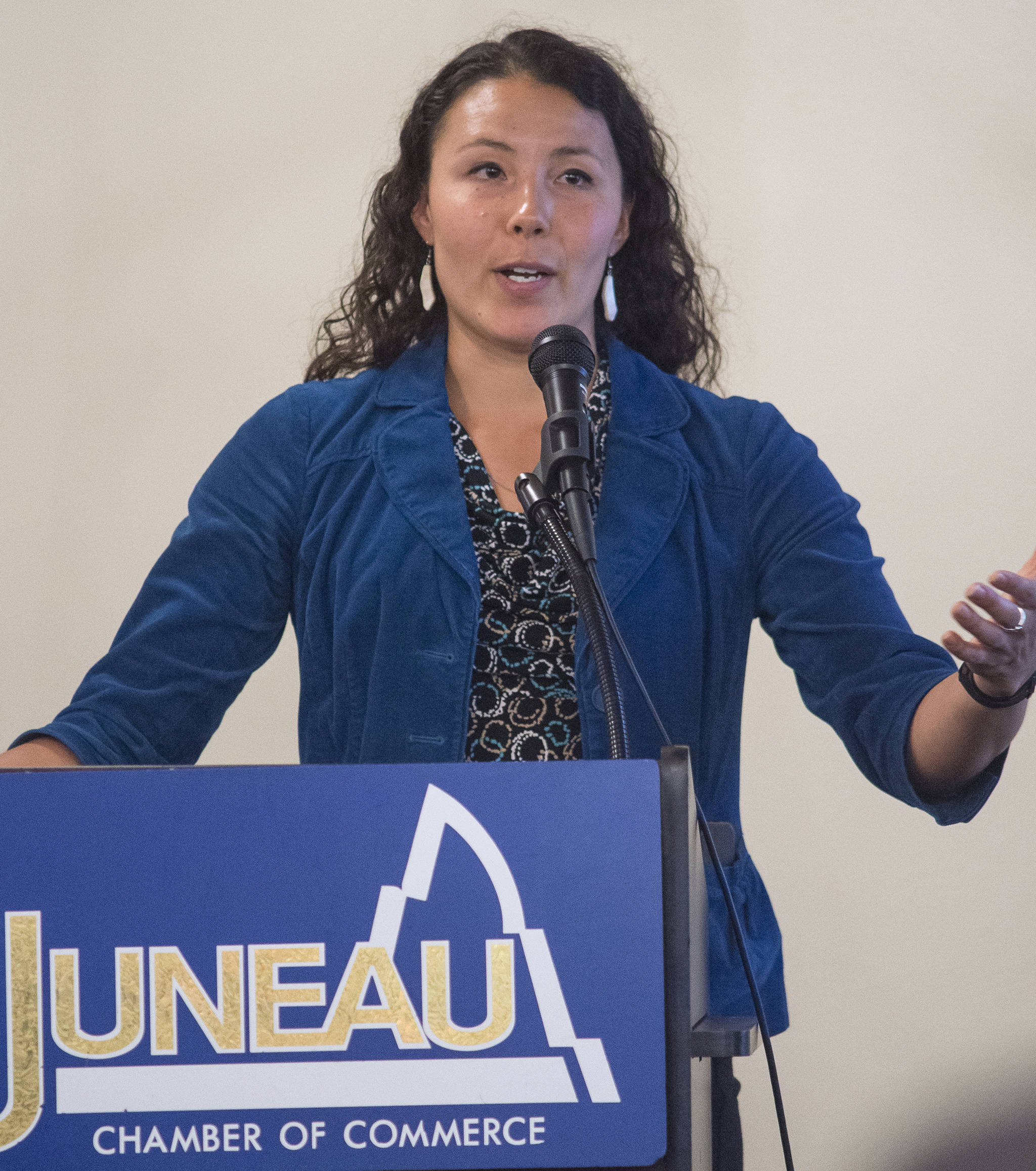Alaska’s Native ivory carvers could be collateral victims as global governments attempt to protect African elephants from poachers.
In a Thursday address to the Juneau Chamber of Commerce, Mary Aparezuk, chief of staff for Rep. Zach Fansler, D-Bethel, said Alaska’s ivory industry is beginning an outreach campaign to distinguish its products from items now illegal.
“What we’re doing today is the very start of outreach and education on the ivory ban,” she said.
Last year, President Barack Obama issued an executive order that put strict restrictions on the sale and transfer of elephant ivory.
Fossil ivory (from mastodons and mammoths recovered from permafrost) and walrus or narwhal ivory wasn’t covered by the federal order, but five states have enacted legislation that goes beyond the federal limit.
California, Hawaii, New Jersey and New York all have passed bans covering all types of ivory goods, including ivory that comes from walrus and narwhal tusks.
That’s a problem for Alaska Native carvers who make money from selling legal ivory products. Their main market is the tourist market, and many tourists come from those states.
Under the Marine Mammal Protection Act, Alaska Natives are allowed to harvest walrus for their ivory and sell carved products.
“We’re asking all of you to be educated consumers,” Aparezuk said, and to tell others.
She told Chamber members that it’s important to reassure tourists and prospective buyers that yes, Alaska Native-carved products are legal, and it is legal to take them home if you have the correct paperwork.
Aparezuk said that buyers should make sure they keep a receipt that has the name and address of the seller, and they should try to get a certificate or receipt that shows the carved ivory work came from a particular tribe or carver.
The Eskimo Walrus Commission, U.S. Fish and Wildlife Service, Indian Arts and Crafts Board, and the Alaska State Council on the Arts have cooperated to create a brochure explaining the rules, and tips for identifying genuine Alaska products.
Kawerak Inc., the regional nonprofit corporation for the Bering Straits, has been developing a strategic plan to address the ban, said Vera Metcalf of Kawerak and the Eskimo Walrus Commission by email.
In 2016, Sen. Dan Sullivan, R-Alaska convened a field hearing of a U.S. Senate committee during the Alaska Federation of Natives convention in Fairbanks. Numerous people, including Rosita Worl of Sealaska Heritage Inc., testified at that hearing.
“These ivory bans are a deterrent and may confuse those who would buy. Suppression of the ivory market could be disastrous,” Worl said at the time. “Alaska Natives firmly believe and support efforts to preserve the African elephant. However, we do not believe efforts should affect the Alaska Native ivory artists.”
Metcalf and Kawerak president Melanie Bahnke also testified.
Metcalf said by email that the outreach effort is continuing through media channels and social media.
Fred Parady is deputy commissioner of the Alaska Department of Commerce and a member of a working group created to find a solution to the ivory issue.
That working group first met in September, and Parady said the issue is finding a way to stop elephant poaching without harming Alaskans.
“It’s not going away,” he said of the issue. “We’re going to have to work to draw the distinction.”
• Contact reporter James Brooks at james.k.brooks@juneauempire.com or call 523-2258.

